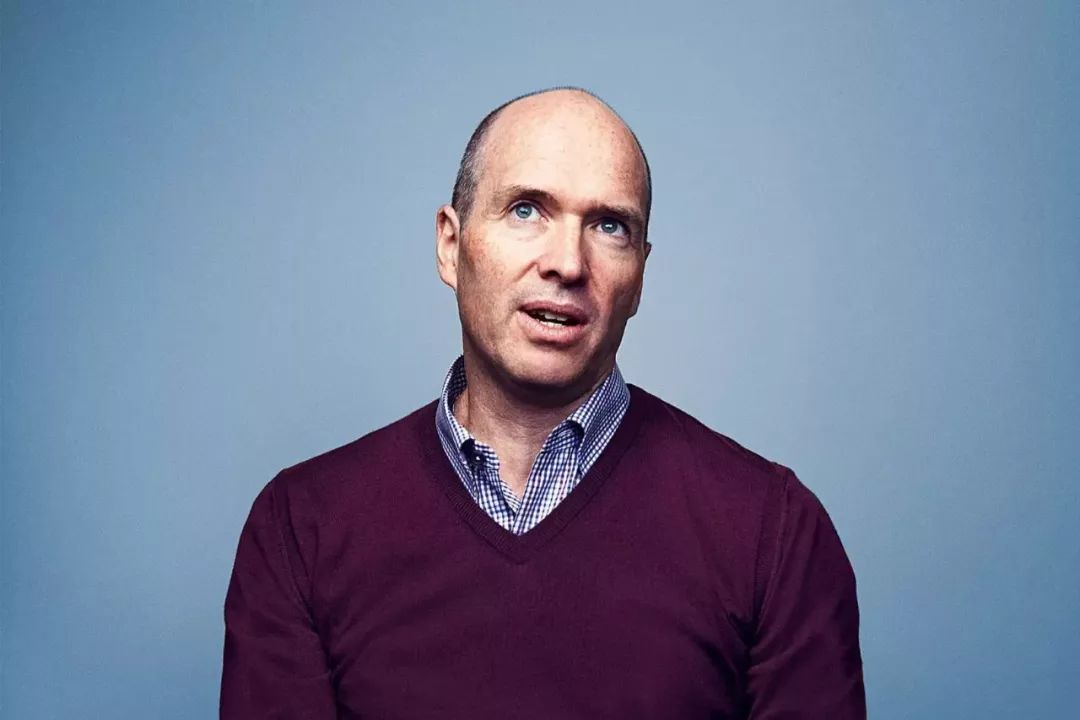Legendary venture capitalist Ben Horowitz talks about the blind spots of corporate culture and the future of blockchain
Interview: Sara Silverstein and Jacqui Frank
Originally published on Business Insider, an excerpt from this article
Source: Chain smell

- Explore the huge potential of multi-parallel Dai and what changes will be brought by the introduction of MCD
- New Deal full moon, official media blockchain reports have shifted from "science popularization" to anti-counterfeiting supervision
- Viewpoint | Departure at the End: Ethereum EIP and Upgrade Process Improvement Proposals
Ben Horowitz, founding partner of venture capital firm Andreessen Horowitz
- Ben Horowitz is the co-founder of venture capital company Andreessen Horowitz. He believes that many companies have cultural misunderstandings. Corporate culture has nothing to do with whether pets are allowed in the office or what kind of snacks the company offers. Corporate culture refers to how people make decisions, respond to emails, and conduct daily work without supervision.
- According to Ben Horowitz, if you want to encourage a "behavior," you have to make a rule that is easy to remember, purposeful, and shocking. Demonstration alone is not enough. He explained that he wanted Andreessen Horowitz's company culture to respect entrepreneurs, so Andreessen Horowitz would fine employees who were late for meetings with entrepreneurs and fined $ 10 for every minute late.
- Ben Horowitz said that many aspects of Silicon Valley culture, such as casual dress codes, still exist, but it seems that everyone has forgotten why they were born. This specification was actually pioneered by Intel co-founder Bob Noyce. He knows that the best engineers are just as important as top management. Neuss has developed a casual code to ensure that the engineer's voice can be heard. Others have heard to eliminate hierarchies formed in the workplace.
- Ben Horowitz shared why Bitcoin is one of his most exciting investments and why he is bullish on blockchain.
Ben Horowitz, a founding partner of venture capital firm Andreessen Horowitz, recently spoke to Business Insider reporter Sara Silverstein about how corporate leadership can be diverse And his views on encryption.
Sara Silverstein: You have published a new book, What You Do Is Who You Are, and you define what a corporate culture is and what it is not. How do we understand these ideas?
Ben Horowitz: Actually, this was a difficult problem when I was still CEO. Because everyone would remind me, "Ben, pay attention to your corporate culture." I would say, "Okay, what should I do?" You have to fix it yourself. As a result, you will find that advice from a human resources consultant or someone else is often the opposite of what you want. Then they would say, "Then have an informal meeting where everyone comes to brainstorm and contribute various values, and then you put those points into the performance evaluation of the people."
But corporate culture ultimately falls on what people do when you are away or unsupervised. Some questions similar to the following: Oh, will they call back today or next week, or not at all? Will they attend the meeting on time? Will they work until 5 or 8? Do you know whether a commercial transaction is successful or not because of price or partnership?
All these detailed behaviors are OK even in the performance evaluation, but you don't know if he did it, you don't know if they answered the phone, or even if they answered the phone. So, corporate culture is ultimately one thing: it's all you do. This is why the title of my book borrows the spirit of Japan's "Budotsu" (a set of codes of conduct created by ancient Japanese samurai). Bushido said, "Culture is not a set of beliefs, but a set of actions." So, my new book is about how you achieve the actions you want employees to perform.
Sara Silverstein: How do you get them to perform the action you want? If you hadn't written a list of rules in an informal setting, how did you pick out the ones that were particularly important and how did you get people to follow them?
Ben Horowitz: Very subtle and difficult to express. It is the minutiae that are driving culture. I like to say "push" culture, not "establish" culture, because you can't make orders.
Let me give you a small example that we often come across in the office. The word that all venture capitalists often hang around is: We value entrepreneurs, we love entrepreneurs, we respect entrepreneurs, and respect their entrepreneurial process. But once you get into the real workings of this industry, this is often the case: oh, do you need money? I have money, you have to come and see me, and then I will decide if I want to invest you money. At this time, who is the big shot? Who is the little man? Then you will see their actions and they will show up 30 minutes late. If you are an entrepreneur, this is almost the industry practice. In fact, they will not invest in you, they will disappear and they will not even respond. When our company started, we faced this theoretical problem, that is, we want to respect the entrepreneurial process, but it is difficult to achieve. What should you do?
For this, I designed an annoying and surprising "ghost idea". The rule is: If you are late for a meeting with an entrepreneur, you will be fined $ 10 for every minute you are late. Oh, you have to go to the bathroom? Five minutes late for $ 50. Oh, did you receive a very important business call? Ten minutes late for $ 100. They would say, "Ben, I work for your company, why should I pay you? It's too unfair." I would say, "Because I want you to understand how hard it is to set up a company, and I want to You know, you should work hard on time planning. I know that business calls are important, and I also know that you have to go to the bathroom, but if it is your wedding, I do n’t think you will be late. "So this thing is very important, As important as the other things you do. They think of this every time they go to meet people. Why should I be on time? I want to be on time because it's really hard to start a company.
Sara Silverstein: For each company, one culture may be more appropriate than another. Can you give me some examples, some cultures are applicable to some companies, but not to others?
Ben Horowitz: Absolutely. For example, Amazon is one of the companies with the strongest corporate culture in the technology industry. One of them is to focus on frugality. This culture is so solid, such as going to Amazon in early years, you will find that they even use old doors to make tables, or some other waste material. It's as if you can't afford a table. In fact, this is consistent with their strategy of keeping their suppliers cheap (and more fundamentally low). Therefore, the promise that its customers receive is: If you choose Amazon, you don't have to compare prices at all, because our prices will be the lowest.

Apple Park, Cupertino, California. Picture from YouTube / Matthew Roberts.
In stark contrast to this is Apple. They just set up a $ 5 billion campus. I don't know how much the door handles of their offices will cost, more than a thousand dollars. Why is it so expensive? Yes, they are concerned about high-end design and exquisite products. They will never incorporate frugality into their cultural values, which means nothing to them.
You know, Apple products are much more beautiful than Amazon products, and Amazon products are usually much cheaper.
Which one you choose, your culture must support your business strategy. So, not every culture is suitable for all companies. There is no good corporate culture or bad corporate culture, it is a self-consistent culture that helps to achieve the goal you want.
Sara Silverstein: Many of your examples are from Silicon Valley. What do you think Wall Street can learn from Silicon Valley's corporate culture experiments?
Ben Horowitz: Yes, Wall Street has Wall Street culture. In any industry with a real history, you will encounter something like culture, which has always existed but you can't figure out why.

Intel founders Robert Noyce (right) and Gordon Moore (left), picture from Intel Free Press
We also have something like this in Silicon Valley. Most Silicon Valley culture was established many years ago by a company called Intel. Intel has a great founder, Bob Noyce. He fundamentally changed the business culture and brought the hierarchical culture from the East Coast. For example, executives have their own special parking spaces. Into a more equal and more elite governance culture.
The idea behind it is that the best engineers are as valuable to the business as senior management. Therefore, they need to make sure that they can hear the best engineers' ideas and their voices can be expressed. Therefore, Intel has a casual dress code, low partitions and so on.
Silicon Valley still retains these things, but everyone has forgotten why. Therefore, it's not because we want you to wear pajamas when you go to work, so you just wear pajamas to work. In fact, we want people to wear something similar, so there won't be anything like that.
I think Wall Street has many of these old traditions. In Hollywood we will see that there is the origin of the entire "Me Too" movement. In fact, many practices come from the early days, and they have remained in the culture there. These are not good ideas at first, but just like someone wants to keep them, these are never good ideas. There are such things in culture until you face them and say, "Okay, we have to change." Inertia keeps a culture alive.
Sara Silverstein: As an entrepreneur and investor, you have a long career. What is the biggest mistake you have made in terms of corporate culture, can you give an example?
Ben Horowitz: I made a lot of mistakes. The deepest memory I have is that I thought, "If I lead by example, everyone will follow my culture." Not at all, because people seem to come in with their own culture. The entire company will have a variety of subcultures. As the company grows, they don't even know who you are.
There is an example I will never forget. I feel that I am basically an honest person. No one is 100% honest, but I am quite honest. I have a colleague in charge of the product who often talks big, and his promise to everyone is false. He recruited employees and told them what we would do and how he would tell customers what would happen, but I didn't know these things at all. Then someone will tell me these things, and everyone is telling his amazing stories. And me, "No, it's impossible. Why is this so?" I was shocked, how could they keep lying? I never tell lies. In fact, this is the culture he brings, he comes from an over-marketed company. Therefore, if you don't set a culture, the culture will develop on its own, it is not necessarily the way you behave.
Sarah Silverstein: When you conduct a due diligence on a prospective investment project, do you find some red flags? You said that it's difficult to identify the culture of a company just by going through the cinema. Is there any clue for you to discover whether the culture of a company is good or bad?
Ben Horowitz: I mean, you can find some clues. In our place, it is very difficult to thoroughly investigate a company within the prescribed time frame. However, it rarely happens that a company's founder or CEO deliberately fabricates something, or exaggerates or falsifies something before completion, or what they call "lying" At the same time, there were no similar signs throughout the company. This is impossible because this practice is often contagious. You will always find some clues.
It is also the case that you see the company's many founders in the meeting, and some of them dare not say their thoughts or other things even at the conference to promote their company. These are some clues in corporate culture, but I have to say that few entrepreneurs know how to build a culture, so culture is what they learn in entrepreneurship. You know, we can't find out who is the master of culture when we come in, like Toussaint Louverture (early leader of the Latin American Independence Movement, the founding father of Haiti) or something similar.
Sara Silverstein: If you visit a company like WeWork, they have a lot of culture, some of which are very good for what they are building, and some of them are not so important in the end. How would you rate this situation?

Adam Neumann is a co-founder and former CEO of WeWork, courtesy of Jackal Pan / Getty Images
Ben Horowitz: There are many times when your strength is your weakness. WeWork's corporate culture is extremely optimistic. Adam has convinced the entire company that they can do anything, they will change the future of work, and so on. This culture has brought powerful power to enterprises, not only helping them to raise a large amount of funds, but also improving the quality of their employees, as well as the motivation behind the entire business, and the people who work with and work with will be convinced It is a powerful optimism. Although I don't have a direct contact with WeWork, I think it's easy for people to turn off bad news when you're so optimistic overall. We are changing the world, we are doing things and everything goes smoothly. We said earlier that things will succeed. Then someone said, "You know, our accounting system really can't keep up with the pace of business development. We can't even keep track of what we are doing now." "Nothing, things will get better." And this is exactly the problem. There is a problem with WeWork that we don't know internally? This is impossible. The problem is that, no matter what, the information is not delivered where it needs to go, and this is usually a cultural issue, a cultural issue about whether you can hear both good and bad news.
Sarah Silverstein: Let's take a look at Andreessen Horowitz's investment portfolio. Do you have any investment cases that you like better? Are there any jobs that the media have not reported and you are particularly excited about?
Ben Horowitz: There is a start-up company that I personally invested in. I think it may be because it is infrastructure, so the media has not paid special attention to this company. Its name is Databricks, which is an infrastructure for artificial intelligence services, or a database of big data. They are solving a series of amazing problems, such as being used to cure cancer, and governments can be used to monitor potential large-scale attacks. I think what can be done is incredible, if you can really manage such a huge amount of data.
Sara Silverstein: Are you still interested in Bitcoin?
Ben Horowitz: Yes, yes, not just Bitcoin.
Sarah Silverstein: Can you elaborate?
Ben Horowitz: All cryptocurrencies.
Sarah Silverstein: Why?
Ben Horowitz: We believe that cryptocurrency and blockchain technology will have a transformative role in the future. Because this is a new computing platform and a new way of thinking. It's confusing: Like many new computing platforms, it's bad in every way except for one point. Think about smartphones, which used to be a worse computing device than a PC. If you want to make a spreadsheet on your smartphone, it has no keyboard and the screen is small. From this perspective, smartphones are really bad. However, it has a GPS and a camera, so you can build services like Instagram, Lyft taxis, etc. These things will never be built on a PC, and you will never create these services on a PC.
The same is true for blockchain. Its new feature is "trust", which means we don't have to trust a company, government, lawyer, or other institution. I just need to believe in the "game theory" and mathematical characteristics of the platform, and then I can program on it and construct new things. Bitcoin is a good example. I can "program" currency. People would say, "Bitcoin, it's this, it's that, but it's not the real currency." But bitcoin has a 10-year history and a market value of $ 170 billion. It's just software. A software program tinkered with by four people. You continue to say, "How is that possible?" Because it's already trusted by people, people believe it can store value. This is really an amazing thing.
If you can "program" countless things, such as a new set of judicial rules, art, etc. What will happen then? Now art is virtual. Yes, art is virtual. How much is canvas and paint worth? Little money. However, if you know that the painting was painted by the artist Jean-Michel Basquiat and others don't have it, then this painting is very valuable. What if you could do this digitally? Well, you can use blockchain technology to do the job. In fact, there are all kinds of amazing possibilities, all in their infancy. We are fascinated by it.
We will continue to update Blocking; if you have any questions or suggestions, please contact us!
Was this article helpful?
93 out of 132 found this helpful
Related articles
- Viewpoint: The blockchain situation is always erratic, because its origin has a great relationship with the hacker culture
- Beijing News: Virtual currency speculation shows signs of rise
- DeFI: What should the future of open finance look like?
- Market analysis: When the news is flying around, we have to keep calm
- Supervision and oversight of regulatory oversight have paved the way for the healthy development of the blockchain industry
- Dialogue Nobel Laureate in Economics: If Facebook dominates Libra, power may be greater than US president
- Everbright Securities Global Chief Economist: Platform digital currency is systemically important, and central bank digital currency has public policy value






